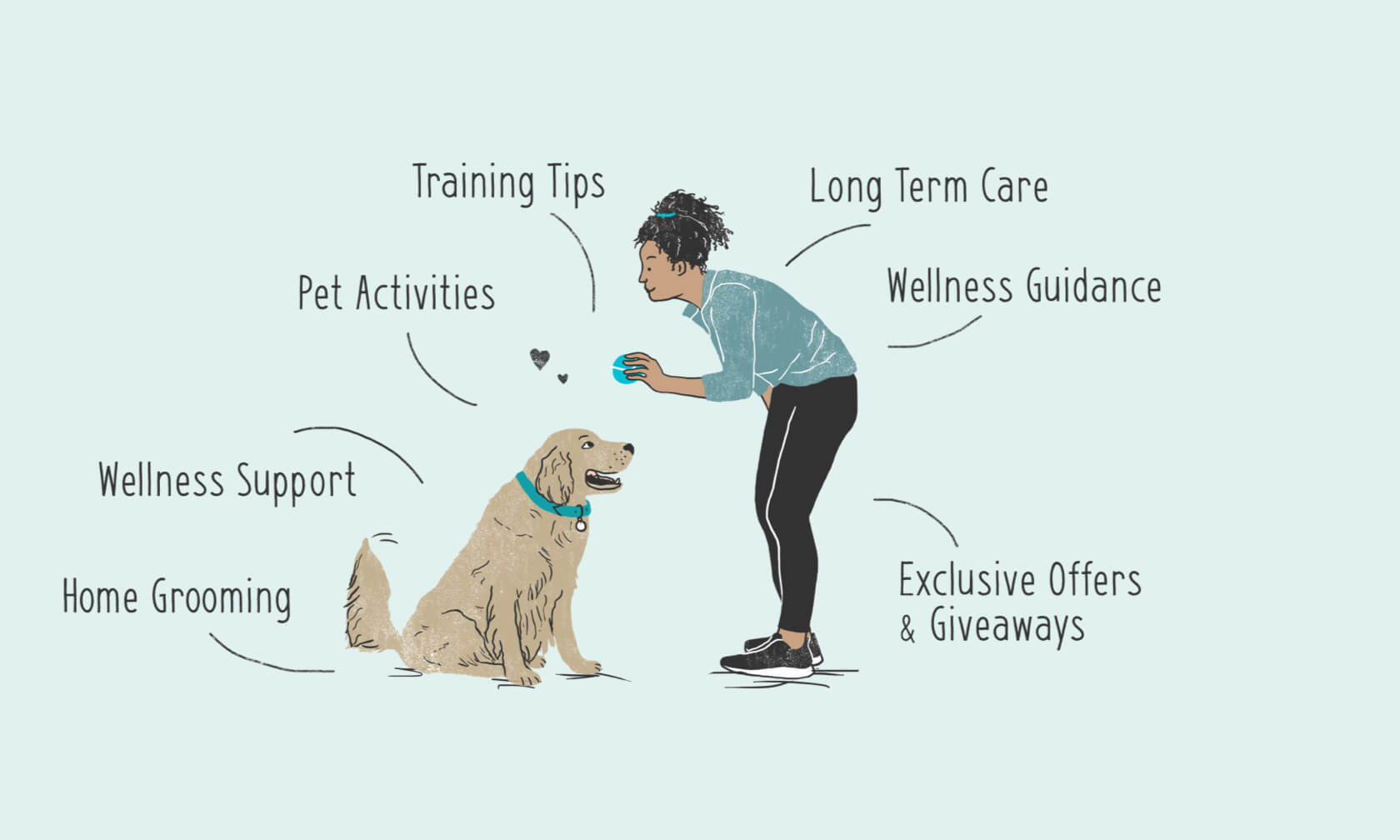Enjoyable Tasks You Can Appreciate with Your Pets to Strengthen Your Bond
Comprehending Your Pets' Nutritional Needs for Optimum Wellbeing

Importance of Well Balanced Diet Plans
Guaranteeing a balanced diet regimen for pets is crucial for their general health and wellness. A correct diet regimen not just maintains life yet likewise enhances the lifestyle by providing vital nutrients that support different bodily features. Pets, like human beings, need a blend of proteins, carbohydrates, fats, vitamins, and minerals to keep optimal health. Each nutrient plays a distinctive duty; healthy proteins are essential for tissue repair and development, fats provide energy and support cell function, while carbohydrates act as a key energy resource.
Incorporating a range of nutrients guarantees that animals keep a durable immune system, healthy and balanced skin, and a shiny coat. A balanced diet plan can avoid a host of health and wellness issues such as obesity, which is linked to diabetes and joint issues, or lack of nutrition, which can lead to developing hold-ups and body organ disorder.
Pet owners have to bear in mind section dimensions and calorie consumption, as overfeeding or underfeeding can have severe repercussions. Consulting with vets or animal nutritionists can assist customize diet regimens to satisfy specific needs, making certain that pet dogs obtain the suitable equilibrium of nutrients required for their age, task, and dimension level. A consistent and balanced diet plan is crucial for a family pet's long life and happiness.
Species-Specific Nutritional Needs
How do various species of family pets have varying nutritional requirements? Each types has unique metabolic paths, gastrointestinal systems, and dietary demands that should be met for optimal wellness.
Birds, depending on their types, may require a diet regimen abundant in bugs, fruits, or seeds, highlighting the diversity within the bird globe. Pets. Reptiles, such as serpents and turtles, similarly demand species-specific diet regimens, with some needing high levels of calcium and others, a well-calibrated balance of bugs and plant issue
Recognizing the nutritional differences among different types is essential for family pet proprietors. By acknowledging and catering to these differences, we guarantee the provision of proper nourishment, supporting the general well-being and vitality of our family pets.
Age and Size Factors To Consider
While species-specific nutritional demands lay the structure for a pet dog's age, diet regimen and size further improve these demands. Young animals, such as kittens and puppies, require diets rich in calories, healthy proteins, and crucial nutrients to support quick growth and advancement. These young animals have greater metabolic prices and call for more frequent feedings to maintain their energy degrees and make sure appropriate development of body organs, bones, and muscular tissues.
As pets age, their nutritional demands change substantially. Adult pets usually require less calories than their younger counterparts but still require a well balanced diet to keep overall wellness and vigor. Solutions designed for adult pets frequently focus on maintaining weight, promoting digestive system health and wellness, and sustaining an active way of life. Conversely, elderly animals might benefit from specialized diets that attend to age-related obstacles, such as joint health and wellness, cognitive function, and body organ assistance.

Health And Wellness Issues and Dietary Adjustments
Certain health and wellness conditions can considerably influence the dietary demands of family pets, demanding tailored dietary adjustments to support their health. For instance, animals with diabetes mellitus may profit from diet regimens that are high in fiber and low in straightforward carbohydrates to help manage blood glucose levels. Obese pets commonly need reduced-calorie diet regimens to promote weight loss and protect against associated health and wellness complications.
Animals with renal condition may call for diet regimens low in phosphorus and protein to relieve kidney workload. Omega-3 fatty acids, understood for their anti-inflammatory residential properties, can be useful for pets struggling with problems like joint inflammation or inflammatory bowel condition. Additionally, pets with food allergies or intolerances could require hypoallergenic diet regimens, typically calling for a process of removal to determine and exclude annoying ingredients.
Vet support is important when making dietary adjustments, as inaccurate nutrition can intensify existing health issue or result in brand-new ones. Regular tracking and changes based upon the pet dog's action to nutritional adjustments are vital. A balanced approach, thinking about both clinical and nutritional click for more info requirements, guarantees that dietary treatments add favorably to managing health conditions, boosting not only the family pet's health and wellness but additionally their quality of life.
Tips for Picking High Quality Animal Food
Choosing the best pet dog food is important for ensuring your family pet's wellness and long life. A well balanced diet plan sustains their immune system, keeps healthy weight and promotes general vitality. Begin by consulting your veterinarian to comprehend your family pet's details dietary demands based upon wellness, age, and breed standing.
When evaluating pet food, look at the ingredient listing. Top quality pet dog foods often detail genuine meat, chicken, or fish as the primary ingredient.
This shows the food satisfies established nutritional requirements. Brands with a history of recalls or poor high quality control need to be approached with care.
Think about whether your family pet would gain from unique formulations such as grain-free, high-protein, or limited-ingredient diet plans. read the article These can be advantageous for animals with allergic reactions or details health problems. Observe your pet's feedback to the food. Screen their layer problem, power degrees, and digestion to ensure the diet regimen is effective.
Conclusion
A thorough understanding of pets' nutritional needs is critical for advertising their ideal health and wellbeing. Balanced diets tailored to species-specific requirements, in addition to factors to consider for health, age, and dimension conditions, are essential in preventing weight problems and poor nutrition. Consulting with vets is advised to make sure high-quality food option that meets individual nutritional demands. By sticking to these concepts, family pet owners can substantially add to their pet dogs' development, energy degrees, and total health, promoting a happier and much healthier life.

Picking the right pet food is essential for guaranteeing your pet's health and wellness and long life. By sticking to these principles, pet dog proprietors can dramatically contribute to their animals' development, power levels, and total wellness, fostering a better and much healthier life.